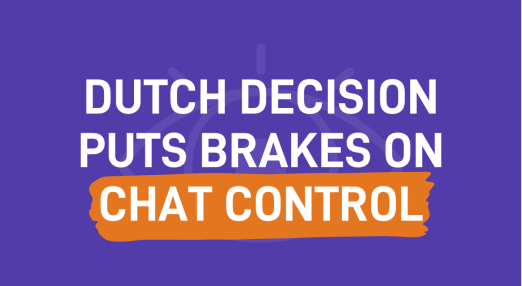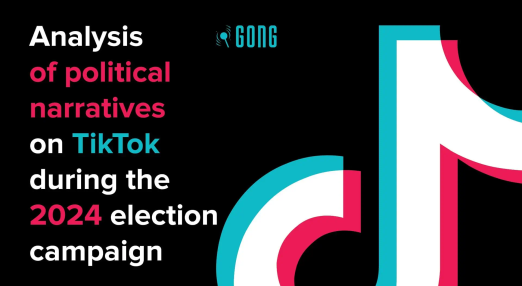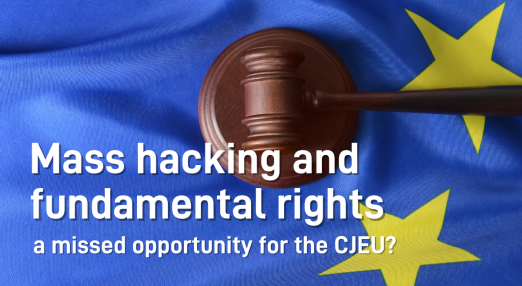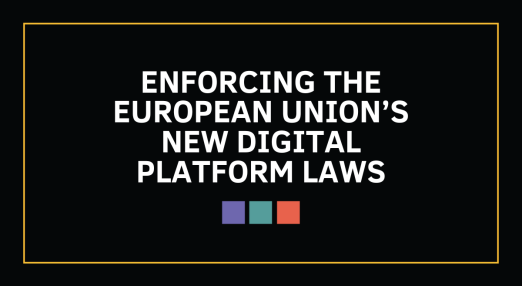Our work
EDRi is the biggest European network defending rights and freedoms online. We work to to challenge private and state actors who abuse their power to control or manipulate the public. We do so by advocating for robust and enforced laws, informing and mobilising people, promoting a healthy and accountable technology market, and building a movement of organisations and individuals committed to digital rights and freedoms in a connected world.
Filter resources
-

Dutch decision puts brakes on Chat Control
This controversial draft EU law has seen so many twists and turns that it’s giving us whiplash. Under renewed pressure from Hungary’s Viktor Orbán, some lawmakers had hoped they could finally get enough support for the controversial bill this autumn. But following a vital last-minute decision by the Netherlands, we are safe from “Chat Control” – for now.
Read more
-

EDRi-gram, 25 September 2024
With summer on its way out, there might be a chill in the air. But there’s none to be found in Brussels and the digital rights world. Last week, we were glued to our screens as the European Commission President Elect, Ursula Von Der Leyen, announced the Commissoners-Designate and what they’ll be in charge of. Now, these Commissioners will go through live-streamed hearings at the European Parliament next month before starting work. We’ll be watching with interest… and maybe popcorn. This week, we’re also concerned about the impact of age verification proposals on fundamental rights and the well-being of children and young people. Spoiler alert: it’s not good. Evidence & lived experiences show these tools are dangerous, discriminatory and unsafe. EDRi and 63 organisations and experts wrote to the European Commission to urge them to halt proposals for using such tools in the implementation of the Digital Services Act (DSA) and the eIDAS Regulation. Now that we’ve all firmly, albeit sadly, turned off our summer out-of-office messages, it’s also time to catch up on what Google, Meta, X and other tech giants have been up to over the summer, especially with the DSA and Digital Markets Act (DMA) in place.
Read more
-

Making decision-making just and accountable: A vision for our digital future
Together, we can protect human rights, strengthen democracy, and reshape societal systems. Read about our commitment to making decision-making just and accountable, as part of our Vision for 2024 and beyond.
Read more
-

Open letter: The dangers of age verification proposals to fundamental rights online
On 16 September, EDRi and 63 organisations, academics and experts in privacy, encryption, child safety, sex workers' rights and consumer rights issued a joint statement urging the European Commission to prioritise effective child safety measures while expressing serious concerns about the suitability, proportionality, and negative impact on fundamental rights of current age verification proposals.
Read more
-

What the arrest of Telegram’s CEO means for digital rights
French prosecutors have charged Telegram CEO Pavel Durov for illegal content disseminated by users of his platform and the company’s failure to cooperate with law enforcement authorities. EDRi is following this case with great concern, here is why.
Read more
-

EDRi-gram, 11 September 2024
With the post-election shake-up and the upcoming appointment of new European Commissioners, both governments and tech giants are making moves that could threaten our rights. In Denmark, efforts to broaden the definition of antisemitism, including criticism of the Israeli state, may lead to the misuse of the Terrorist Content Online Regulation to silence pro-Palestinian voices. In France, legal action against Telegram’s co-founder has intensified calls for stricter enforcement of the Digital Services Act. At the EU level, we’ve seen a troubling decision by the European Commission to cut funding for free software projects. In light of these challenges, and as we prepare for the next EU mandate, we’ve launched a collective strategy process with our members and partners to ensure civil society’s voice is heard in shaping the future of EU digital legislation. On 1 October, over 40 organisations will meet at the Tech and Society Summit to bring our collective vision on the intersection of technology, society, and the environment closer to decision-makers.
Read more
-

Prioritising planet care: A vision for our digital future
Together, we can protect human rights, strengthen democracy, and reshape societal systems. Read about our commitment to empowering people to flourish and thrive, as part of our Vision for 2024 and beyond.
Read more
-

Denmark will issue removal orders without court approval: Impacts on free speech and pro-Palestinian voices
Removal orders in the Terrorist Content Online (TCO) Regulation currently require prior court authorisation in Denmark, but this will soon change as a consequence of a political agreement to strengthen the fight against antisemitism. Together with a broadened definition of antisemitism focusing on the State of Israel, the already highly problematic TCO Regulation could be further leveraged by Danish authorities for arbitrary censorship of pro-Palestinian voices on social media.
Read more
-

Croatian TikTok: A battleground between pro-EU and anti-EU narratives
Gong, a Croatian democracy watchdog organisation and EDRi member, published an analysis of the political narratives on TikTok during the national 2024 election campaign. The research explores the political narratives and environment on TikTok in the pre-campaign and campaign period for the Croatian parliamentary elections. It highlights a vibrant and intricate political landscape on TikTok in Croatia, marked by a division between democratic and anti-democratic narratives aimed at swaying the platform's younger audience.
Read more
-

Mass hacking and fundamental rights: a missed opportunity for the Court of Justice of the European Union?
On 30 April 2024, the Court of Justice of the European Union (CJEU) published its decision in the ‘EncroChat’ case. The case emerged from recent European police cooperation operations against organised crime, involving the mass interception of encrypted communications by means of spyware (‘hacking’).
Read more
-

Celebrating 25 years of Bits of Freedom!
In 2024, EDRi member Bits of Freedom celebrates its 25th anniversary. For a quarter of a century it has been their mission to shape internet policy in support of an open and just society. One in which people can hold those in power accountable and effectively question the status quo. Bits of Freedom does this through advocacy, campaigning and litigation, in the Netherlands and Brussels. Time to look back: what are the highlights of the past 25 years?
Read more
-

Enforcing the European Union’s new digital platform laws: How it is going so far
It’s already September and the European Parliament’s summer break is officially over. While the legislature was sleeping, the European Union’s (EU) tech enforcers and their counterparts—Big Tech lobbyists—have been busy plotting their next moves. If you have been away over the summer, here is what you might have missed and what that means for the state of digital rights in the EU
Read more
